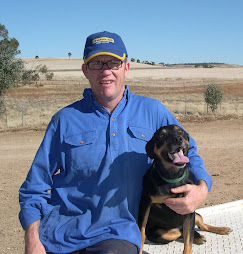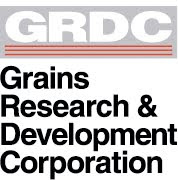Everyone in the group flew into Canberra today to start the journey. Coming from Adelaide there is only two direct flights, so Nikki took me to the airport at 5.30am. I arrived nice and early in Canberra.
Federal Parliament was sitting today and with an old scholar as the deputy chair in the House of Representative. I went to see question time. Bruce Scott (Nuffield Scholar and MP) got me a seat in the Speakers Gallery. I arrived at 1.45 to only see a few MP’s in “The House”, but once question time drew near they all strode in to their seats and were ready for the 2:00 start.
The Opposition were still trying to get at Peter Garrett for the Insulation Scheme. There is a lot of problems with this scheme, that has left people out of work and companies with huge levels of stock on hand already paid for. The Government were not in the mood to answer any question other than the staged one’s coming from their own side.
I was very impressed by the Honourable Julia Gillard when she was asked a few questions and how see went about partly answering them. Each side of the house had their hecklers. Wilson Tuckey was like a mad uncle everyone has in their family. He would yell out and cat call at regular intervals.
We had a tour of Parliament House, courtesy of Bruce Scott and were able to have dinner in the Members Dining Room. Bruce was a gracious host and gave us a insight into politics, both Agri and Straight. Some of key drivers for dinner conversation were global warning & feeding the worlds 9 billion people. With the questions of “can we produce enough?”, “who will produce it?” and “if we can, will they be able to pay for it?”
I am always amazed by some people’s forward thinking. Burley Griffen who designed Canberra was one of these. Bruce told us of the symbolism used in his plan. On a direct line the path goes from the Tomb of the Unknown Australian Solider, down Anzac Parade, over Lake Burley Griffen to Gallipoli Rocks and all the way up to Parliament House. This imaginary line continues through the House passing through the Great Hall, Cabinet Room and stops in the Prime Minister’s Office.
It symbolises the struggle and sacrifices that have been to allow our country to reach a democracy.
Tomorrow awaits.
A great starter to “The Journey”.
27 February, 2010
22 February, 2010
Marty Phillips

Marty Phillips
Innisfail Queensland
Researching aquaculture production and marketing strategies.”
Marty received his 2010 Nuffield Scholarship supported by Nuffield Australia’s
Queensland branch to research aquaculture production and marketing strategies. Marty operates his own aquaculture business farming barramundi, after diversifying the family farming business from sugarcane, banana and pawpaw production during the past decade. He now focuses solely on aquaculture, producing 200 tonnes of fish a year. He plans to study the fresh-water trout industry in the US and quality salmon program in Scotland as part of his research into marketing and aquaculture production techniques and implications for production costs, water quality and fish flavour. His itinerary may also include other aquaculture industries in Europe,North America and New Zealand.
A Little Bit of Info on Me

Stephen Ball
Riverton South Australia
“Investigate zero-till disc seeding systems in high rainfall growing zones and its impact on soil biology and nutrient cycling.”
I was awarded a 2010 Nuffield Scholarship which is sponsored by the Grains Research and Development Corporation.
My wife Nikki Hannaford and I farm 600ha in the Gilbert Valley, in South Australia’s lower-north region. We produce cereals, legumes and oilseeds using no-till methods and have recently destocked the property of sheep entirely to advance to a zero-till system. We also have established a 2300 head commercial rabbit enterprise, with
potential to expand.
We plan to visit Chile, Argentina and Brazil in South America as well as Canada, USA and Mexico. We will also travel to the United Kingdom to study zero-till farming and to investigate rabbit production techniques in Spain and France.
Rowan Paulet

Rowan Paulet
Flynns Creek Victoria
“Studying the integration of livestock and cropping in high rainfall zones.”
Rowan is a Gippsland producer and has been awarded the 2010 Nuffield Scholarship supported by the Grains Research and Development Corporation, to study the integration of livestock and cropping in high rainfall zones. Rowan co-manages a mixed family farm enterprise across 1600ha near Traralgon, with his parents and brother. They run a 3000-head self-replacing fine wool Merino flock and prime lambs, 300 head beef herd and have a summer and winter cropping program, with some spray and flood irrigation. He plans to visit the United Kingdom, US, Canada and New Zealand to study how other countries have overcome issues related to cropping in high rainfall areas, and strategies for managing cultural change in farming communities like those in Gippsland which are increasingly diversifying from grazing into mixed cropping and livestock systems.
Rob Egerton-Warburton

Rob Egerton-Warburton
Kojunup Western Australia
“Integrated stock and cropping systems and increasing the rate of improvement in the Australian sheep flock”
Robert has been awarded the 2010 Nuffield Scholarship supported by the Grains Research and Development Corporation to research integrated stock-cropping systems. Robert manages a 3000ha mixed sheep and cropping business in southwest Western Australia, with Merinos for wool production and store Merino-Samm first-cross ewes for prime lamb production. He crops canola, barley and wheat using no-till techniques, and additional farm enterprises include distribution of wildflower seed, supply and distribution of electro-dip equipment and the supply of wheat seed.
He plans to visit the US, Canada, United Kingdom, Netherlands, South America, South Africa and Europe to investigate grazing and winter wheat varieties and other systems that integrate livestock and cropping as complementary activities.
Ian Knowles

Ian Knowles
Balclutha New Zealand.
“Studying international agricultural training models to find a ‘best fit’ for New Zealand land based training.”
Ian is currently the Director of Farms at Telford Rural Polytech in Southland, working as part of the farm team to manage the commercial dairy, sheep, beef and deer units. An important part of his responsibilities is to liaise with the academic staff to make best use of learning opportunities for students on the Telford farm. Ian proposes to study the training requirements of the agricultural sector with a focus on integrating hands-on learning sector with the more academic environment of the universities
Graeme Nicoll

Graeme Nicoll
Fish Creek , Victoria
“Studying resilience in dairy production systems”
Graeme is a dairy farmer from South Gippsland Geoffrey Gardiner Dairy Foundation sponsored him to study resilience in dairy production systems.
Graeme and wife Gillian own and operate a mixed beef-dairy business, milking between 250 and 300 crossbred cows, based on 250ha of owned and leased land south of Leongatha. He plans to visit the Beijer International Institute for Ecological Economics and Stockholm Resilience Centre in Sweden and the McGill University in Canada as part of his studies into resilience and adaptability that could be applied to farming systems in southern Victoria.
David Gooden

David Gooden
Lockhart, New South Wales
“Investigate pesticide application to reduce losses and maximize chemical effectiveness”
David is one of three directors of Agoodco Farm, managing crop production for the 3600ha family operation in southern NSW. The enterprise uses a controlled-traffic farming system with stubble retention in the production of cereals, legumes and green manure crops. David plans to study best management in herbicide application to maximise the effectiveness of chemicals and minimise losses, and the most effective chemical-use regulation strategies. He plans to travel to the United Kingdom, Europe, the US, Canada and China.
Alistair Starritt

Alistair Starritt
Womboota, New South Wales
“Research soil carbon issues.”
Alistair is a partner in his family’s mixed livestock and cropping business, based in the southern Riverina on their 2500ha property, with an additional 1500ha of leased land. They run a 2500- head Merino flock and 2500 first-cross ewes for prime lamb production, with cropping focused on winter cereals, canola and lucerne hay. Production is based on biological farming systems to improve soil health and Alastair plans to research the role of soil carbon in maintaining fertility and possibly generating additional income. His itinerary includes the cropping regions of North America, Canada and Europe.
3 Days and Counting
Just got my tickets for the trip. In 43 days I have got 17 different flights. I am looking forward to catching up with my travel mates. They come from 5 states of Australia and 1 Kiwi from the deep south of New Zealand. We will be travelling together for all of the GFP for 43 Days. I will post the details of the travel mates.
21 February, 2010
Only 4 Days To Go
I am getting very excited as the start of my Nuffield journey is getting very close. My bags are just about packed. I have had all my vaccinations required and have all the necessary visas. I fly out in 4 days to Canberra. We are briefed in Canberra by a number of different speakers representing different agricultural agencies such as GRDC, Cattle Council & Aussie Wool Innovation. We are also briefed by Agricultural Envoys from USA, EU and Mexico. David Brownhill and Jim Gelch will be there to guide us.
We fly out to Sydney on Saturday, then onto London to start our Global Focus Program.
A quick itinerary goes something like this:
London
Wales for 6 days.
Washington for 7 days for the Contemporary Scholars Conference
San Francisco for 6 days.
Mexico for 5 days
Brazil for 7 days.
Uruguay for 7 days
Home for a couple of weeks, and then it starts for my own study area.
We fly out to Sydney on Saturday, then onto London to start our Global Focus Program.
A quick itinerary goes something like this:
London
Wales for 6 days.
Washington for 7 days for the Contemporary Scholars Conference
San Francisco for 6 days.
Mexico for 5 days
Brazil for 7 days.
Uruguay for 7 days
Home for a couple of weeks, and then it starts for my own study area.
Subscribe to:
Posts (Atom)


